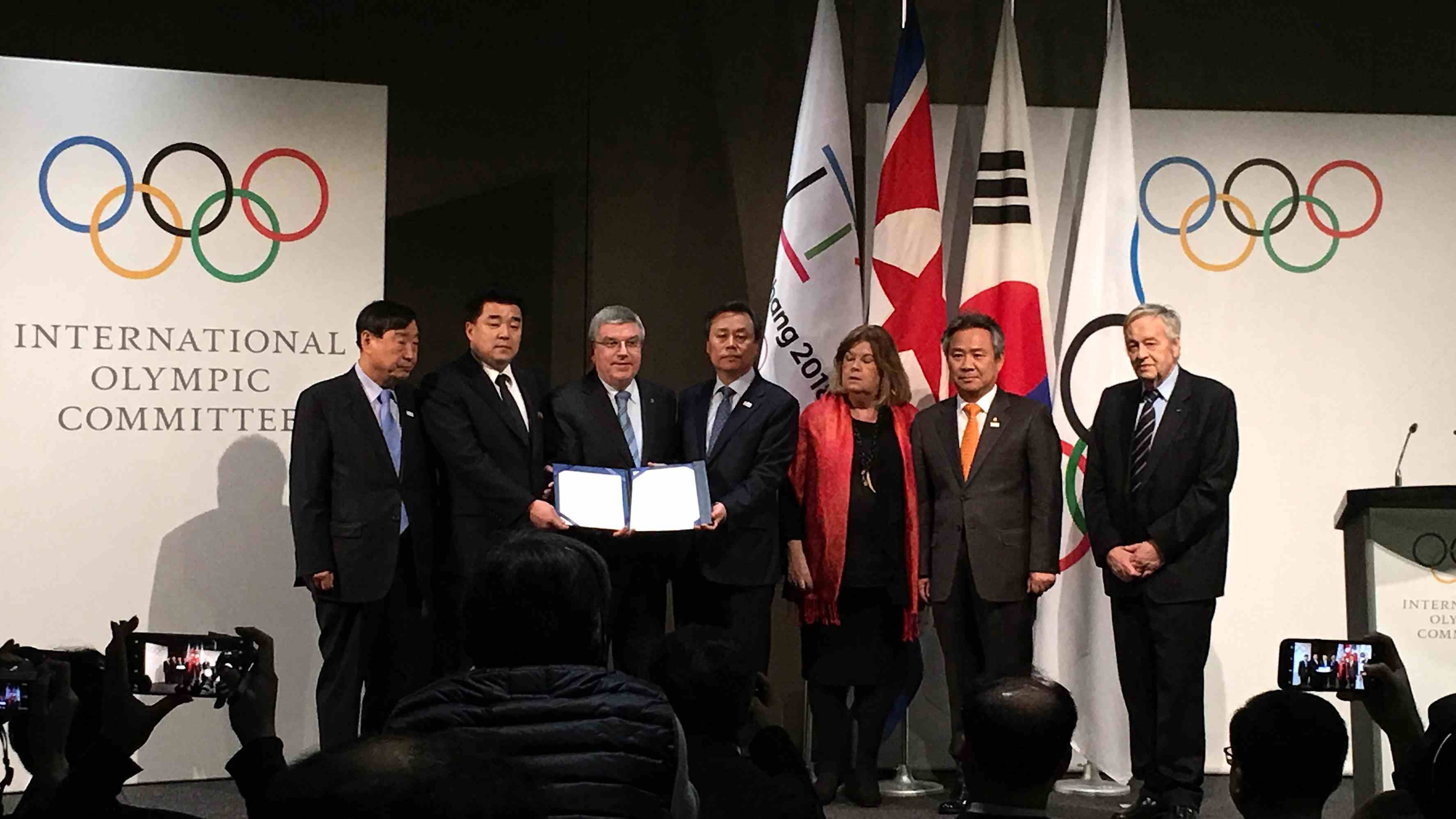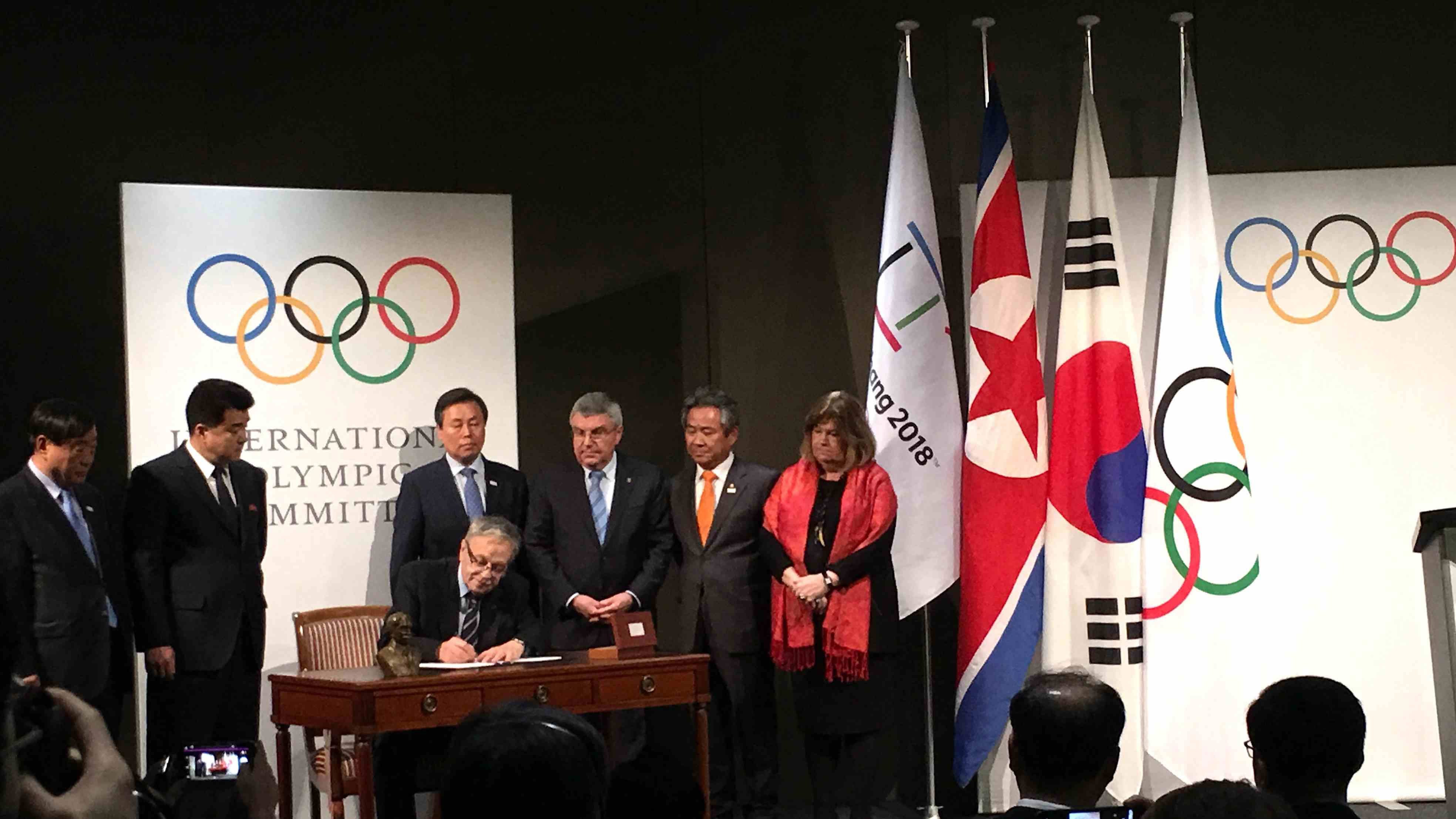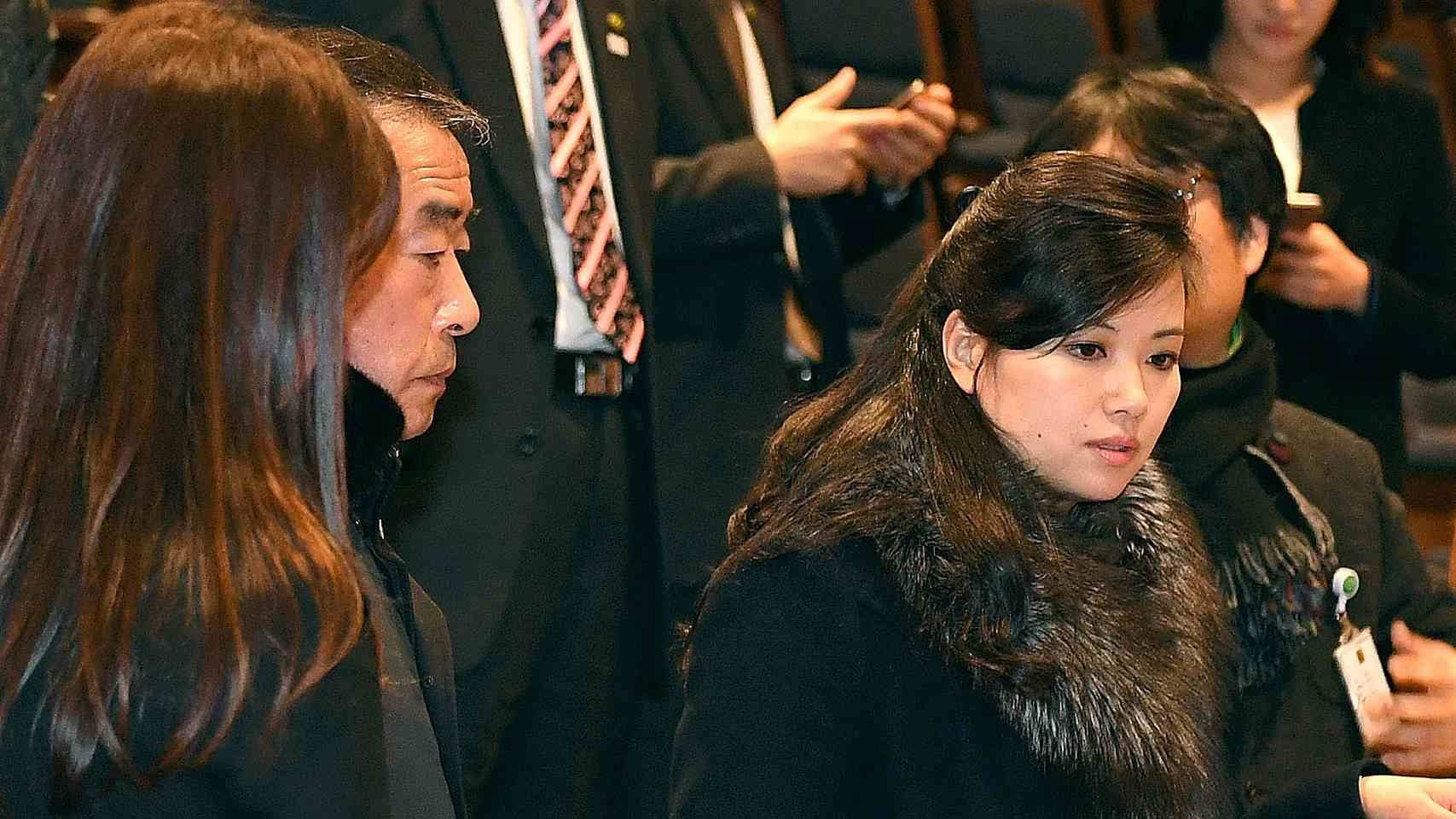
Politics
22:28, 21-Jan-2018
The IOC decision stepping forward among some opposing voice
By Natalie Carney

Over the weekend, the International Olympic Committee (IOC) agreed to allow the Democratic People’s Republic of Korea to participate in next month’s Winter Olympics in South Korea.
The DPRK last competed in the 2010 Winter Olympics in Vancouver, Canada.
Following four-party talks in Lausanne, Switzerland, IOC President Thomas Bach announced that 22 athletes from the National Olympic Committee of the DPRK would be accredited to compete in three sports and five disciplines: Figure skating, short track speed skating, cross-country skiing and alpine skiing.
The IOC has also granted the proposal presented by the National Olympic Committees of both South Korea and the DPRK to form a joint Korean Women’s Ice Hockey team and to allow the athletes from both countries to kick off the games as one.

Four party talks in Lausanne, Switzerland, January 20. /CGTN PHoto
Four party talks in Lausanne, Switzerland, January 20. /CGTN PHoto
"The IOC has approved their request to have their delegation marching together as one under the name Korea at the opening ceremony of the Olympic Winter Games PyeongChang 2018. This team will enter the stadium under the Korean reunification flag,” Bach announced.
Bach called the decision “exceptional” adding that it was a milestone for the Olympic movement and that it showed the power of sport and the Olympic games in uniting people.
The decision comes after historic high-level meetings between the national Olympic committees of the two countries that were widely seen as a move to try and ease tensions on the Korean Peninsula.
Relations between the two neighbors have worsened recently over Pyongyang’s nuclear and missile program.
The Minister of Sport for South Korea, Do Jong-hwan, backed the decision.
“North Korea (DPRK)'s participation in the PyeongChang Winter Olympics will present the most dramatic scene in the history of the Olympics. It can be a chance to show the value and power of sports when players from two Koreas march together and play games together as a unified team."

Hyon Song Wol, head of the DPRK's Samjiyon Orchestra, checks the venues for its proposed art performances at PyeongChang 2018 Winter Olympics at the Gangneung Art Center on January 21, 2018 in Gangneung, South Korea. /VCG Photo
Hyon Song Wol, head of the DPRK's Samjiyon Orchestra, checks the venues for its proposed art performances at PyeongChang 2018 Winter Olympics at the Gangneung Art Center on January 21, 2018 in Gangneung, South Korea. /VCG Photo
DPRK's IOC member Ung Chang also supported the decision saying he was very satisfied with the results.
However there has been concern that this decision erodes the fairness of the games and sets a worrying precedent.
None of the 22 DPRK athletes were registered by the IOC’s October 30 deadline and the coach of the South Korean women’s ice hockey team says that such a late addition of team members could prove a disadvantage to the team’s chemistry.
Many in South Korea also oppose the idea of a joint team and accuse their president, Moon Jae-in, of sacrificing Olympic ideals for diplomatic expediency.
Still, the move is being seen by many governments as a step towards thawing those tensions and repairing diplomatic relations.
And it is hoped that this positive sportsmanship will translate in the diplomatic arena.
8160km

SITEMAP
Copyright © 2018 CGTN. Beijing ICP prepared NO.16065310-3
Copyright © 2018 CGTN. Beijing ICP prepared NO.16065310-3